
Lot 197
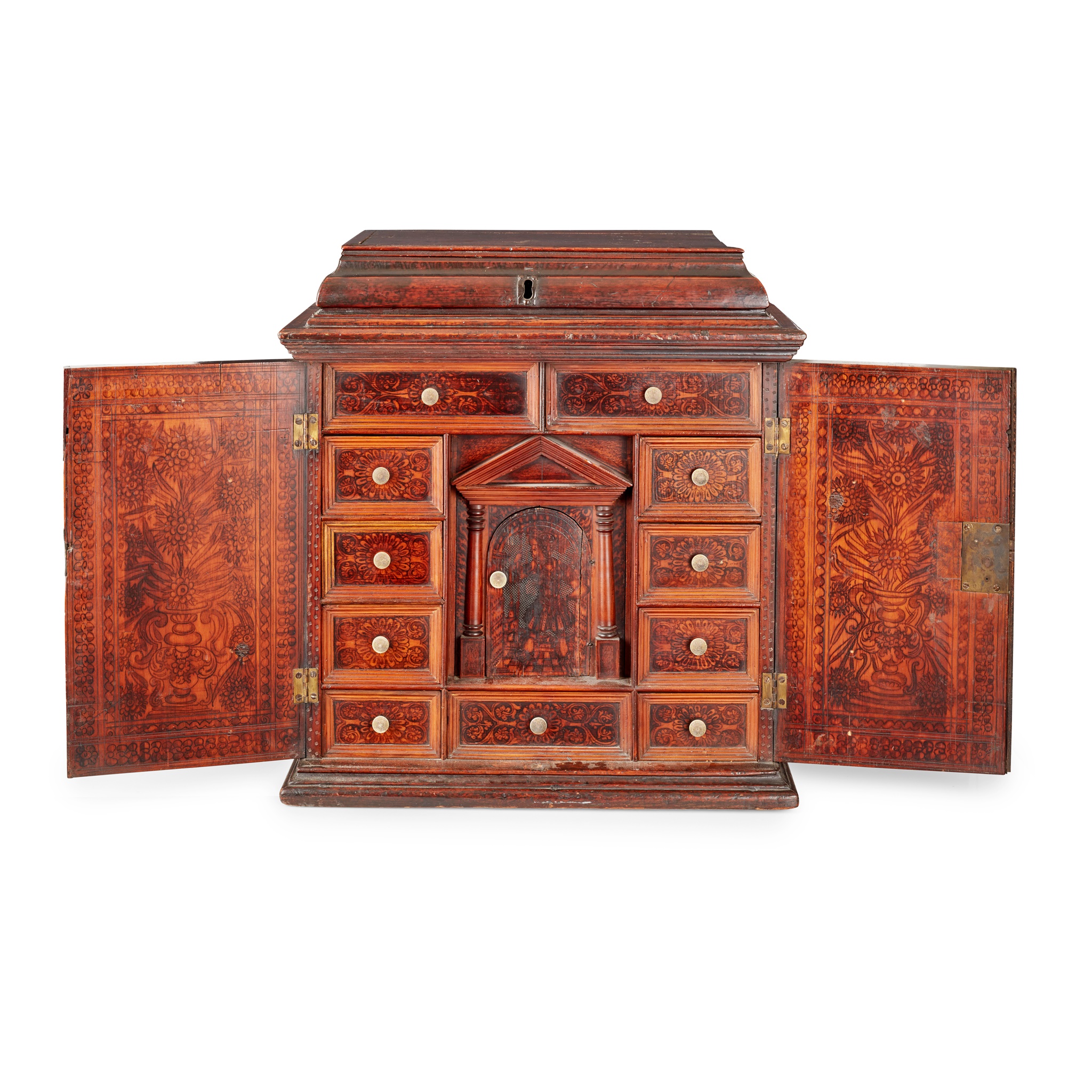
NORTH ITALIAN ALTO ADIGE CYPRESS AND CEDAR WOOD AND POKER-WORK TABLE CABINET Y
EARLY 17TH CENTURY
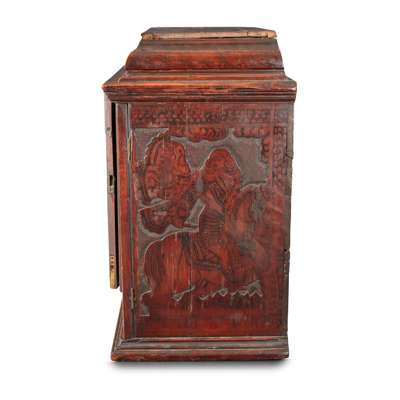
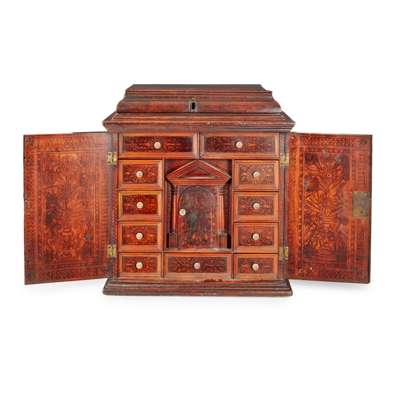
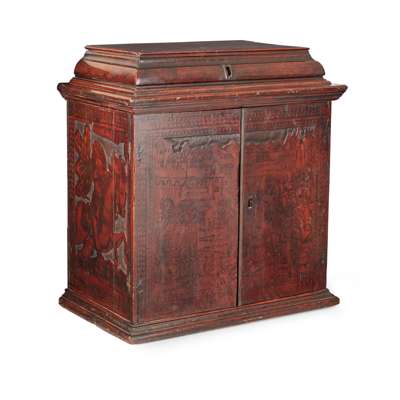


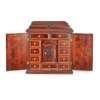
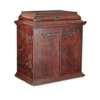
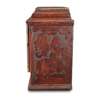
Auction: Day One: 16 November 2022 | From 10:00
Description
the moulded caddy-type top with a rising panel, over a pair of pokerwork and penwork decorated panel doors opening to a fitted interior having an architectural neo-classical panel door flanked by three long and eight short drawers, with later turned ivory handles.
Dimensions
57cm wide
Provenance
Provenance: Collection of the late Sir Richard Shepherd, MP
Footnote
Note: Note: Intaglio carving is a feature of furniture of the northern Italian Alpine region that was popular in the 16th and early 17th centuries, traditionally associated with the area around the Adige River. The technique of flat, incised decoration with inked scenes against a cut away, punched background, often depicted Biblical, literary, and historical scenes accompanied by animals and mythical beasts. Pieces were typically made of cedar or cypress due to their relative softness for ease of carving, but also for their warm colour and scent, which was a deterrent to moth and worm damage. Chests and boxes made of cypress and cedar were useful for storing valuable textiles, and period inventories throughout Europe record them, indicating that they were desirable objects and traded far outside their region of origin. In Shakespeare’s ‘Taming of the Shrew’ Gremio brags of his cypress chests containing ‘arras counterpoints, costly apparel, tents, and canopies, fine linen, Turkey cushions, … and all things that belong to house or housekeeping’. A cypress chest filled with bed hangings was listed in the 1626 inventory of Cockseden [P. Thornton, Furniture History, 1971, p. 68] and examples are in the collection of the V&A and the Metropolitan Museum of Art.
Please be aware that this lot contains material which may be subject to import/export restrictions, especially outside the EU, due to CITES regulations. Please note it is the buyer's sole responsibility to obtain any relevant export or import licence. For more information visit http://www.defra.gov.uk/ahvla-en/imports-exports/cites/
With non-transferable CITES self-certification number WEB27N1G







